Ask a question from expert
Health Care Environment - Sample Assignment
25 Pages6430 Words173 Views
Added on 2020-01-28
Health Care Environment - Sample Assignment
Added on 2020-01-28
BookmarkShareRelated Documents
STRATEGIC AND COMMISSIONING
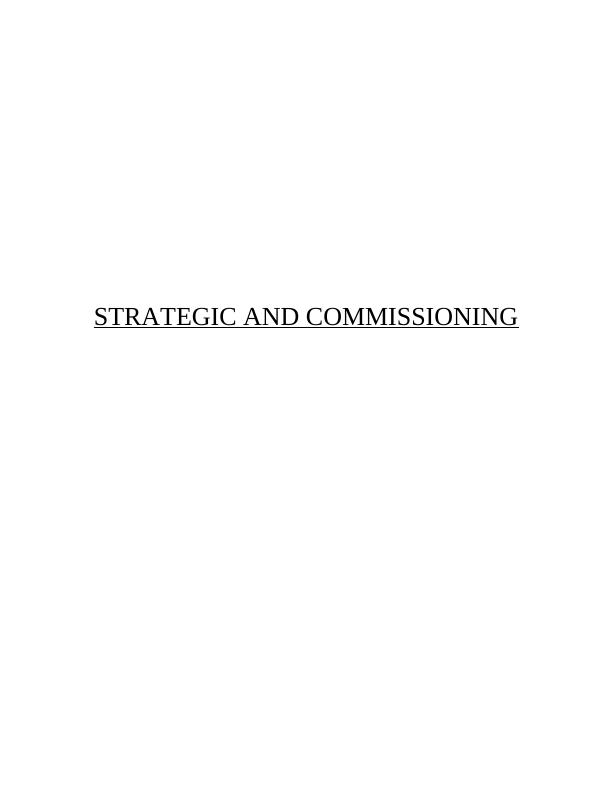
Table of ContentsIntroduction......................................................................................................................................4Strategic Commissioning.................................................................................................................4Strategic Commissioning Framework..............................................................................................8Purpose, values and strategic objectives of NHS England Strategic Commissioning plan.......11Priorities for NHS England............................................................................................................12Involving patients, public and partners in developing a whole system vision...........................13Approach to delivering transformation......................................................................................14Conclusion.....................................................................................................................................18References......................................................................................................................................20
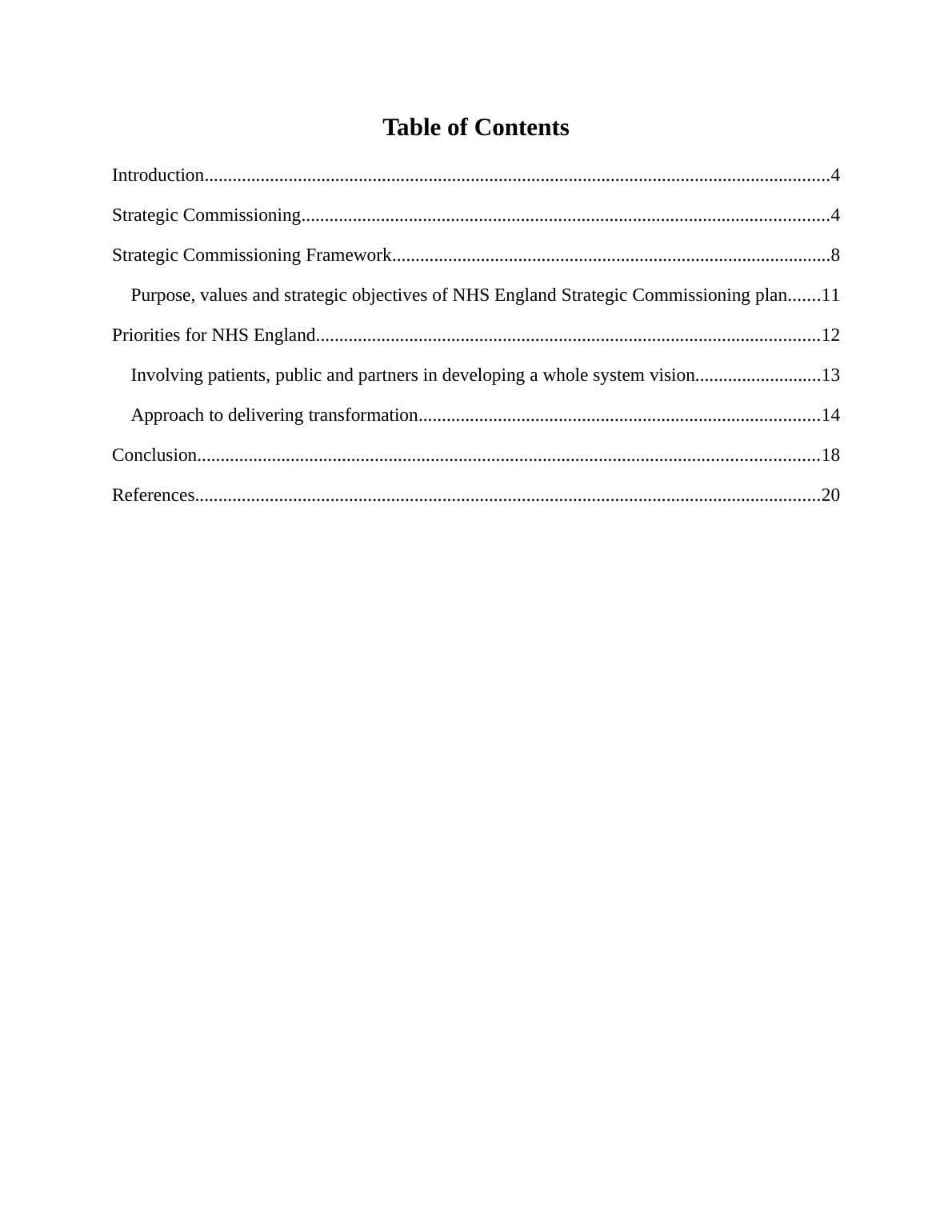
LIST OF FIGURESINTRODUCTIONIn general, strategic commissioning can be defined as the planning and deliveringservices and support for people in a new manner. However, it consist of identifying the needs ofindividuals and communities so as to enable people in deciding what will be best for the needsand expectations. Over the past decade, the role of commissioning, as a key driver of quality,efficiency and outcomes for patients, has become increasingly important to the health system inEngland. The NHS commissioning system was previously made up of primary care trusts andspecialized commissioning groups. Most of the NHS commissioning budget is now managed by211 clinical commissioning groups (CCGs). These are groups of general practices which cometogether in each area to commission the best services for their patients and population.Nationally, NHS England commissions specialized services, primary care, offender healthcareand some services for the armed forces. It has 27 area teams but is one single organizationoperating to a common model with one board. In the present research report, researcher focuseson exploring the range of contemporary approaches to strategic commissioning within the healthcare environment. STRATEGIC COMMISSIONINGIn general, strategic commissioning refers to the process of specifying, securing andmonitoring services to meet people’s needs at a strategic level. However, this applies to all theservices, whether they are provided by local authority, NHS or other public agencies or byvoluntary sectors. Further, strategic commissioning consist of four crucial stages: to analyse,plan, deliver and review (Ozcan, 2005). In other words, commissioning is essentiallytransformational and not just transactional. It is all about developing and shaping the capacitywithin the communities, markets and individual lives that will assist or support the citizen inmeeting their needs and aspirations regardless of age and disability.Improving commissioning has been one of the major focus of many governmentpublications if considering the past few years. However, this consist of Our Health, Care, andOur say, Putting People First, Strong and Prosperous Communities, Health Act etc. Further, in apublished commissioning framework for health and well-being which mainly focuses on theperspective of whole health and care economy within the context of reforming systems to meet3
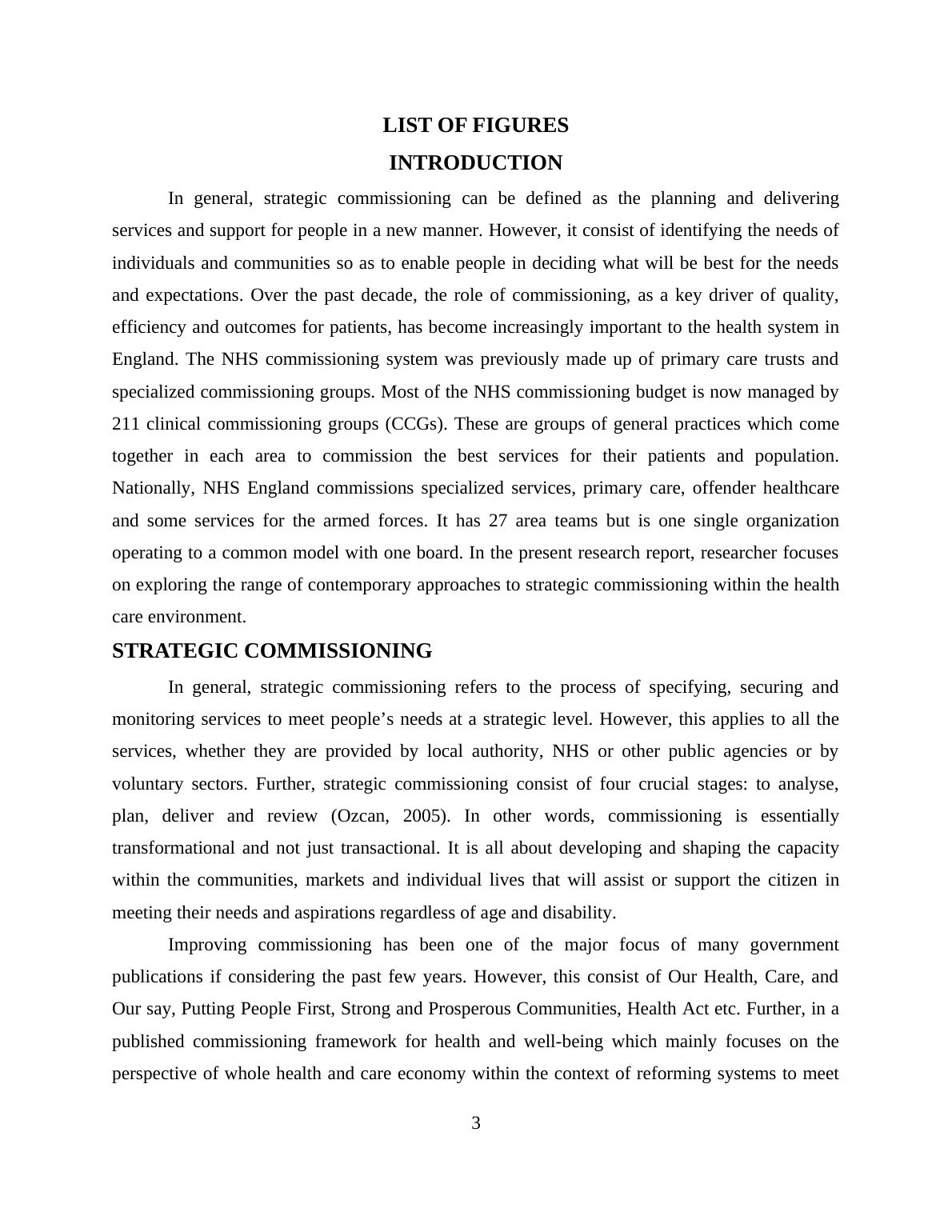
the needs of individuals. In this regard, strategic commissioning for health and care sector aimsat:To place people at the centre while focusing on commissioning.To identify and understand the needs of population as well as of individuals. Making optimum utilisation of available information as well as sharing them properly. Assuring quality in provision.Promote well being within the workforce.Enhancing partnership working and improving the use of flexibilities and joint budgets. Creating single health care vision (Bovaird, Briggs and Willis, 2014).Enhancing the capabilities and leadership skills.Furthermore, IPC commissioning framework is considered to be the most commonframework which consist of four key activities in the cycle of commissioning. However, itemphasises on making sure that all four elements of the cycle such as: analyse, plan, do andreview are in sequence and of equal importance. Therefore, commissioners and contractorsshould spend equal time, energy and attention on these four elements. It concentrates thatcommissioning process should be equitable and transparent in nature to all the stakeholders. Figure 1: IPC Commissioning Framework(Source: Glasby, 2012)In context to NHS England, it is responsible for the direct commissioning of servicesoutside the remit of clinical commissioning group which mainly consist of primary care, publichealth, offender health, military and veteran health and specialised services. Along with this,there are some CCGs which have been fully delegated towards the responsibility forcommissioning and contract management of primary medical care. 4
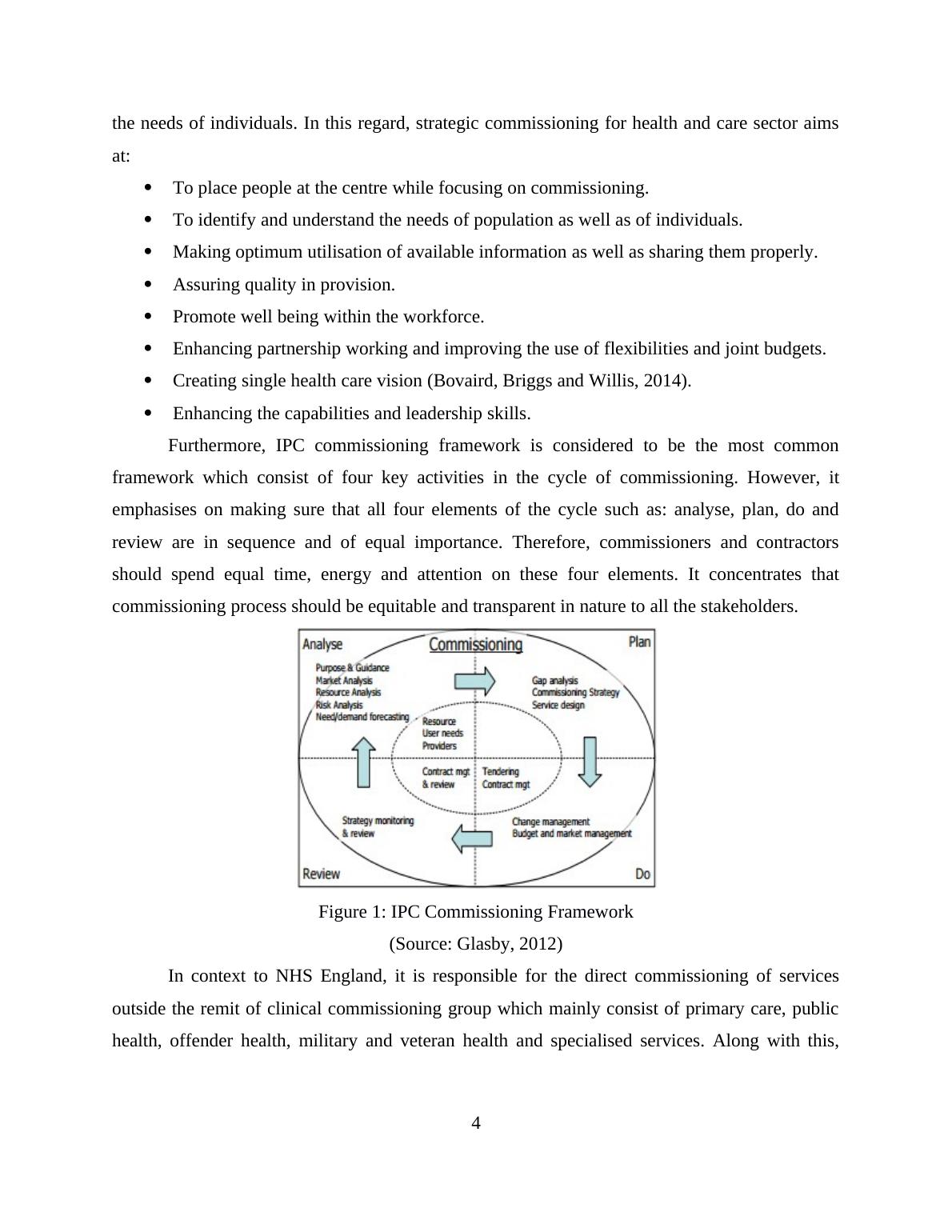
The CCGs contribution in reducing the health inequality gap is addressed by tacklingsome of the lifestyle issues and causes of premature death that are identified in JSNA.Furthermore, CCG has prioritised in improving access to cardiological services, enhancingdiabetic services and refining stroke care, all these are contributing in minimizing the mortalityform of cardiovascular diseases. Moreover, it has also prioritised in improving the psychologicalinput to alcohol services as well as supporting council in addressing the childhood obesity. Commissioning priorities that are directly link to the JSNA:Children’sservicesImprovingUrgent CarePrimary CareMental HealthImproving carefor older peopleImprovingdiabetesservicesReduce childhoodobesity Reduce trend inemergencyimpatientadmission Improving careof 1 in 4England peoplesuffering withself-reportedpoor mentalhealth Reduce insafeguardingincidents and, Minimizingpressure ulcers Reducing thelevel ofundetecteddibatetesImprovingAccess tocardiologyOphthalmologypathwayImprovingstroke careCommunitynursingservicesAlcohol servicesReducecardiovasculardisease mortalityImprove accesstoophthalmologyservicesReduce inmortality ratefrom stroke Improving careto people withlimiting longterm illness,health problemor disabilityReduceemergencyadmission linkedto alcohol from209.5 per100000. Primary care strategyPriori5
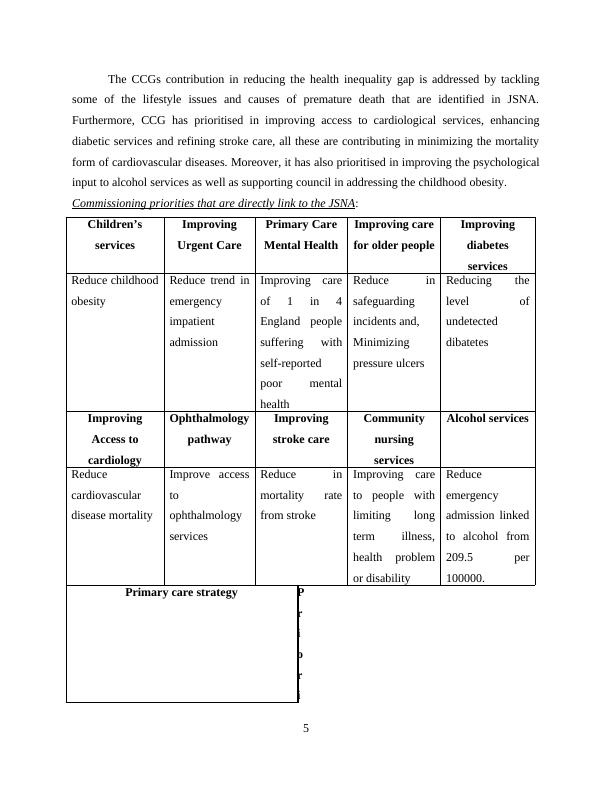
tisationofresourcesMinimizing unwarranted variation inperformance Improving6
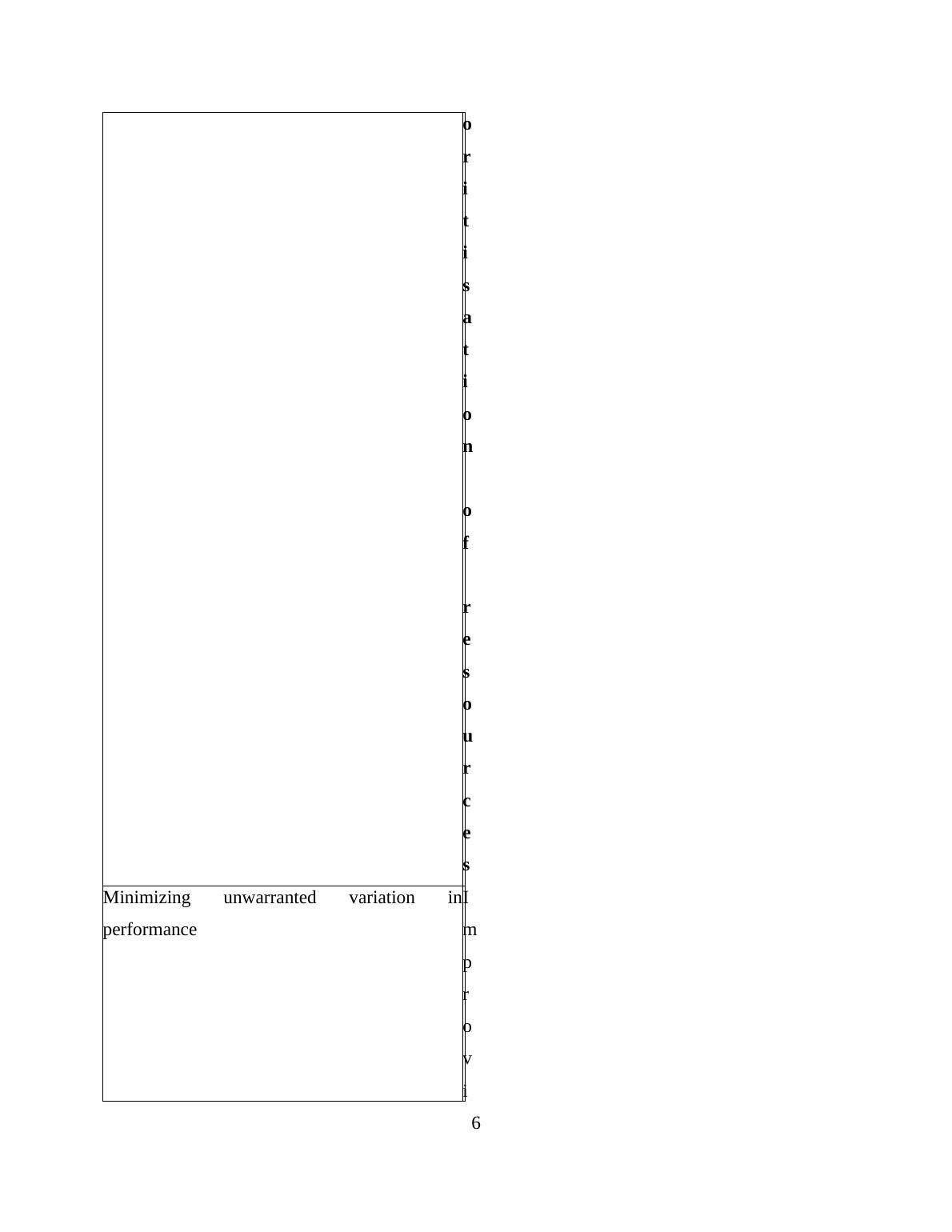
End of preview
Want to access all the pages? Upload your documents or become a member.
Related Documents
Strategic and Commissioning in Health Care: A Contemporary Approachlg...
|22
|5885
|133
Operational Delivery and Strategic Commissioning Assignmentlg...
|15
|4668
|64
Healthcare delivery and Strategic Commissioninglg...
|15
|3349
|132
Strategic Management of NHS | Reportlg...
|15
|4659
|35
Operation Delivery and Strategic Commissioning in UK Healthcarelg...
|21
|5376
|50
Assignment on Health campaignslg...
|6
|1056
|69